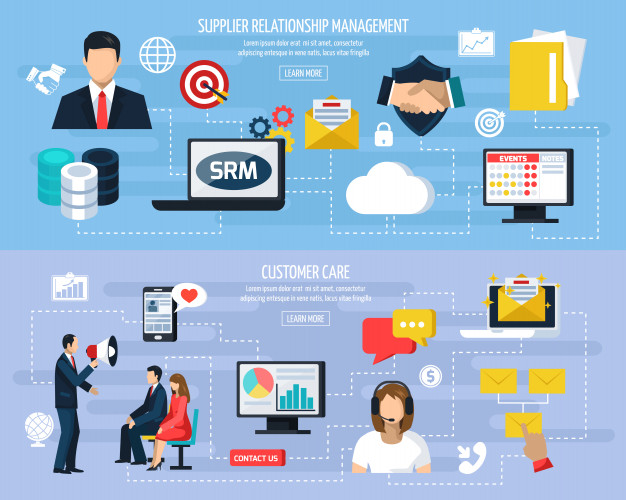The advent of the internet has transformed how various organizational activities are conducted. In fact, many businesses incorporate IT into their business operations to keep up with the drastic changes caused by the Internet. However, to improve your business operations, you need to choose business IT solutions.
So, how does IT improve business operations? It helps to create different innovations that affect how business operations are conducted. For instance, the various IT processes help improve data storage, aid in broader and more efficient dissemination of information between multiple departments, and faster business operations processing.
Basically, a business with an efficient IT process provides better quality services and has high productivity levels. Moreover, due to the importance of IT in businesses’ smooth functioning, you must get the best services from your IT supplier.
To learn how to choose a good business IT solution, read on to the end of the article.
Factors To Consider Before You Choose Business IT Solutions
Several factors play a part in determining how efficient your IT supplier will be. Looking for better service from your IT supplier? Below is an outline of the significant factors:
1. Understand Your Needs
The IT needs of your businesses determine the type of IT supplier suited for it. There are different types of IT suppliers, each providing a broad range of hardware, software, and IT services. They include:
- Manufacturers:These suppliers sell their products and offer essential IT services. Basically, such suppliers are helpful if you are confident that you only need someone to provide you with IT services and support.
- Specialist suppliers:These IT professionals have expertise in a specific field, let’s say, management systems or customer relations.
- Resellers:These mainly act as agents for hardware manufacturers. Nonetheless, some of them also offer software and a wide range of IT services and support.
- System integrators:These IT professionals deliver an integrated working station by selecting appropriate hardware and software depending on your specific needs.
- Consultants:These provide consultancy services tailored to meet the IT needs of your business. Consultants also sell services like IT setup and installation.
2. Determine Your Budget For Business IT Solutions
Your IT budget determines the quality of services you get from your supplier. Most IT suppliers provide different types of services, including cloud backup services, monitoring services, maintenance services, data backup and restoration, firewall services, cybersecurity services, and provision of firewalls.
The types of services your IT suppliers provide you will depend on your IT budgetary allocation. If your budget is low, you will likely afford only the essential IT services.
Conversely, if you have sufficient budgetary allocations, you’ll be able to afford vital IT services that will help improve your organizational efficiency and productivity.
3. Consolidate Your IT services With Business IT Solutions
Some organizations have in-house IT personnel. Such organizations mostly rely on the services of this personnel for most of their IT solutions. However, there are IT services that the in-house personnel cannot provide.
In such a case, the organization source for services of outside IT companies. While there is an option of getting these services from many companies, it is better to consolidate these services from a single supplier.
Doing this fosters good relations with the given supplier. It also aids in their quick execution of the IT services, given that they are familiar with your system. Other benefits of consolidating your IT services with one supplier include:
- You will save moneyand reduce the need to make repeat procurements.
- It gives you better bargaining power when negotiating for prices, given that you deal with one supplier repeatedly.
- It minimizes the failure of critical business services.
4. Check The Track Record Of The Service Provider
There are numerous IT suppliers available. However, the quality of services they provide differs. As such, it is vital that you choose a company that offers the best IT services.
Here are some of the factors that determine an IT supplier’s efficiency: the ability to complete IT services in time, the availability of maintenance services, and the ability to provide high-quality services.
You can find such a company through referrals. Also, you must check their reviews on the internet or outrightly research on the internet. This way, you can determine how suitable the supplier is for your IT needs.
5. Check Whether They Can Maintain Good Relationship With You
Like the case with other suppliers, fostering good relationships with your IT supplier plays a massive part. For instance, it helps to determine the quality of services they will offer you. The following are some of the ways you can ensure this:
- First, ensure that you pay for their services promptly. Prompt payment reduces the chances of any disagreements with the supplier, leading to them opting to stop working with you.
- Likewise, make sure to offerthem reasonable prices for their services. When you pay your IT supplier affordable prices, there is a high probability that they will want to retain you as a client. Moreover, they will strive to provide top-notch services that ensure that your business grows.
- When one business IT solutions supplier offers you services, they will understand your needs better. Hence, they will work to ensure your success.
6. Make Sure The Company Offers A Variety Of Business IT Solutions
Working with a single IT company helps you foster a good relationship with the supplier and cut your IT services costs. When you work with a single IT supplier, you reduce costs such as procurement costs.
Moreover, to learn about different types of business IT solutions, check the next section of the article.
7. The Company Must Have Experience Working With Similar Businesses
There are different types of IT suppliers. Generally, each of them has the expertise to provide solutions that are tailored to specific businesses.
Actually, you must work with a company that is averse to business IT solutions similar to yours. This way, you can ensure that you get the best services from proven industry professionals.
Essential Business IT Solutions You Must Know
Generally, an IT service provider offers the following business IT solutions:
1. Managed IT Services
Basically, Managed IT services include handling of remote servers and device and desktop management. These services will ensure that your system works smoothly.
2. Cloud Backup Services
The supplier should know how to store your data on the cloud to be available even when the server has a malfunction.
3. Monitoring Services
Try to keep an eye on the server’s net traffic, security, communication, and any other monitoring services that your system may need.
4. Data Backup and Restoration
The IT service provider must offer data backup with both external data centers and the cloud. You, therefore, won’t have to worry about losing your data in case of any unforeseen problems. Generally, such problems include malicious intrusions, natural occurrences, and hardware failure.
5. Firewall Services
Firewall services are vital in ensuring that your enterprise is insulated from cyber-attacks. Preferably, your IT supplier should have a hybrid network with additional control and network monitoring abilities outside of the normal rulesets.
6. Antivirus Protection
Your supplier should provide you with up-to-date antivirus to protect your IT systems from any malware that may lead to the loss of sensitive data.
7. Remote Services
Your It supplier should be flexible enough to provide you with IT services even from remote locations. This can be beneficial, especially if you are outsourcing services and there is an abrupt IT problem. Some of the services these IT professionals can solve remotely include software repair, IT support services, and software updates.
8. Mobile And Remote Networking
Your supplier should install mobile networking services in your system that enable your employees to work off-site using computers or mobile devices.
9. Data Analytics
Your supplier should install data analysis software or personally analyze the data to help your enterprise process information such that the data can produce usable information.
10. Networking Services
Networking encompasses activities that are geared towards ensuring your business has an efficient network. The supplier should build efficient network infrastructure, setting up devices like LAN, Reuters, Modems, optimization, security, and other factors essential in creating a seamless network.
11. Unified Communication
The supplier should provide you with software that unifies all communications in your enterprise in a single space, such as the UC software.
12. Communication Management
Efficient communication within the various departments is crucial to your business’s smooth flow. As such, your IT supplier should provide you with universal communication software that incorporates messaging from chat, voice calls, video calls, and email.
Basically, such a system will ensure that there is an efficient flow of information between the personnel from different departments. It can also aid in creating efficient communication with outside parties such as suppliers and creditors.
Choosing The Best Business IT Solutions: Way Forward
The recent increase in internet usage and technology demands that every business have an IT department to run smoothly. While there are several IT suppliers to choose from, knowing which supplier is best suited for your company is essential to ensuring that your business gets the best business IT solutions.
The first step to ensuring that you get the best IT services is choosing an IT provider that offers services that meet your needs. Some of the ways you can do this include ensuring that they charge affordable prices for their services, offer a wide range of services, are available whenever you need their services, and offer excellent IT services.
Getting such a company will ensure that your business’s operations run smoothly and that your productivity increases.
Do you have more information to offer about business IT solutions? Please share them in the comments section below.
Read Also:
























